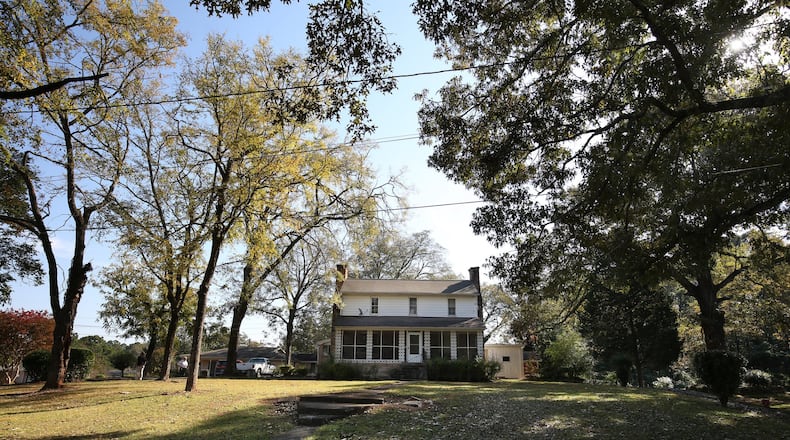Gwinnett County is planning to take 10 acres of the “Promised Land” property through eminent domain to develop a park that will highlight the area’s history.
The property is part of a former slave-worked plantation that became a thriving Black community. Thomas Livsey Sr. and his wife, Dorethia, own the land. It is part of a 100-acre parcel that Thomas Sr.’s father bought in the 1920s, a notable accomplishment at the time for a Black man in the South.
The county since 2017 has bought about 4.5 acres from the Livsey family through negotiations for $462,000, said District 2 Commissioner Ben Ku, who newly represents the area after last year’s redistricting. The purchases include a former plantation house the county plans to turn into a museum.
The county has been negotiating with the family since 2019 for two remaining properties required for the park, but talks have been difficult, Ku said. The properties include 7.7 acres encompassing Lake Sheryl and another 2.7 acres that contain four apartments, Ku said. The lake property was recently appraised at $250,000 and the apartment property at $460,000, Ku said.
In a news release, the county said it was offering the appraised values for the properties. The county commission plans to take up an eminent domain resolution at its regular meeting the night of April 25, according to a county attorney.
Thomas and Dorethia Livsey could not be reached Wednesday for comment.
A grandson, Chad Livsey, asked Tuesday on Facebook for donations for attorneys’ fees to fight the eminent domain.
“The county has done nothing with the Bighouse,” he said on Facebook, adding that the county wants to “whitewash” the project.
“Everyone knows who cares about this area and it’s not Gwinnett County, it’s the friends, family, and neighbors,” he said.
Ku said the Gwinnett County Probate Court would appoint an attorney for the Livseys.
“That’s why we’re doing it this way, is to ensure the Livseys’ financial and legal interests are protected,” he said.
Residents of the apartments will be entitled to relocation costs, Ku said.
“If we want to do the grand vision of that park, we need the lake property as part of that,” he said. “I know that the neighbors have had a lot of questions about the restoration of the house. Part of the reason that has been held up is we’re trying to figure out if we’re going to be able to go ahead and do the park project or not, because that has always been part of the larger park plan.”
Plans for the 10 acres include a trail around the lake, an orchard or vegetable garden, an event pavilion with a restroom and an interpretive pasture area, according to a 2018 concept from Lawrenceville-based Lose Design.
Outbuildings — including a barn, shop, stable, brick kiln, gin house and syrup mill — would be recreated there using information from historical texts, according to the plan. Pathways through the site would be compliant with the Americans with Disabilities Act.
The lake might need to be modified for storm water management, the plan says.
About the Author





